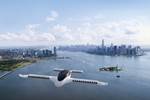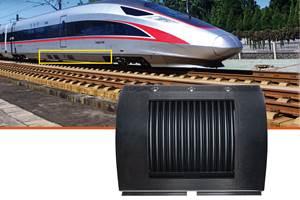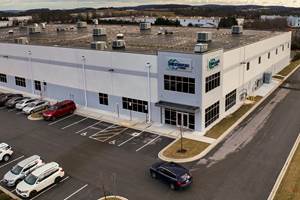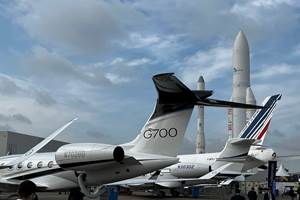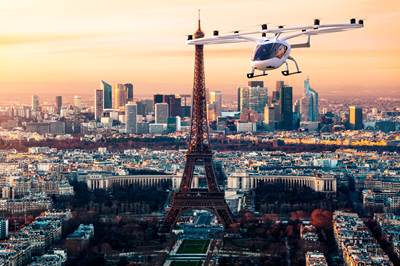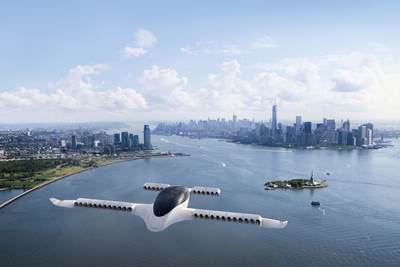Volocopter raises €200 million in Series D funding round for Volocity eVTOL aircraft
€322 million in cumulative funding has been raised to accelerate the certification of the Volocity aircraft and launch of its first commercial routes.
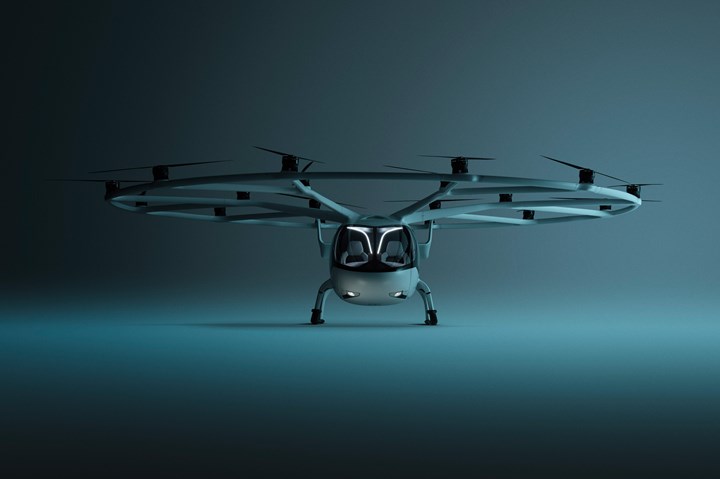
Photo Credit: Volocopter GmbH
Volocopter GmbH (Bruchsal, Germany) an electric air taxi company developing the VoloCity, an autonomous helicopter eVTOL, announced on March 3 the signing of its Series D funding round, raising €200 million (USD $240 million) in additional capital. Cumulatively, Volocopter has raised €322 million. It said the funding will be used to solidify Volocopter’s leading position in the urban air mobility (UAM) market by bringing VoloCity, the battery-powered air taxi for cities, to certification and by accelerating the launch of its first commercial routes.
Said to be the first eVTOL company to receive Design Organization Approval (DOA) by the European Union Aviation Safety Agency (EASA), Volocopter says it is in the final stages of providing new, sustainable mobility options for cities around the world. Future services range from electric autonomous aircraft for passenger flight, to transporting goods with the company’s VoloDrone. Volocopter expects its first commercial air taxi routes to be opened within the next two years.
“Volocopter is ahead of the curve in the UAM industry, and we have the achievements to prove it,” says Florian Reuter, CEO of Volocopter. “No other electric air taxi company has publicly performed as many flights in cities around the world, with full regulatory approval, as Volocopter has. Our VoloCity is the fifth generation of Volocopter aircraft and has a strong path to being the first certified electric air taxi for cities. Volocopter already has the extensive partnerships necessary to set up the UAM ecosystem for launching both our company and the industry into commercial operations. We are called the pioneers of UAM for a reason, and we plan to keep that title.”
The company offers a holistic approach to the UAM market by developing a full ecosystem to connect all vital parts. This includes multipurpose aircraft (VoloCity and VoloDrone), and physical and digital infrastructure (VoloPort and VoloIQ), as well as partnerships with global leaders in their respective fields.
“We are thrilled to welcome investors who share our belief that innovative technology like our Volocopter is one of the key enablers for a sustainable future,” says Rene Griemens, CFO of Volocopter. “Our shareholder structure remains well balanced with a healthy mix of strategic and financial partners spread as globally as our business ambitions.”
New investors in Volocopter include funds managed by BlackRock (New York, N.Y., U.S.), global infrastructure company Atlantia S.p.A. (Rome, Italy), Avala Capital (Berlin, Germany), mobility technology giant Continental AG (Hanover, Germany), global technology-focused investment fund Jericho Capital (New York, N.Y., U.S.), global technology and business solutions provider NTT (Tokyo, Japan) via its venture capital arm, Tokyo Century, a leading Japanese leasing company, leading family offices and others. All existing investors, including Geely (Wan Chai, Hong Kong), Daimler (Stuttgart, Germany), DB Schenker (Essen, Germany), Intel Capital (Santa Clara, Calif., U.S.), btov Partners (St. Gallen, Switzerland), Team Europe (Berlin, Germany) and Klocke Holding (Baden, Germany) amongst others also joined the round.
Volocopter says it has performed several milestone flights in Helsinki, Stuttgart, Dubai and over Singapore’s Marina Bay in recent years. While the first routes are yet to be announced, the company has committed to establishing air taxi services in Singapore and Paris, with plans to expand many more routes in the U.S., Asia and Europe.
Related Content
Composite sidewall cover expands options for fire-safe rail components
R&D project by CG Rail explores use of carbon fiber-reinforced thermoplastics and recycled manufacturing scrap to meet fire safety, weight and volume targets.
Read MoreHexagon Purus opens new U.S. facility to manufacture composite hydrogen tanks
CW attends the opening of Westminster, Maryland, site and shares the company’s history, vision and leading role in H2 storage systems.
Read MoreParis Air Show 2023 highlights
The Paris Air Show, one of the largest aerospace trade shows in the world, returned for the first time since 2019 and proved that the global aviation industry industry is very much alive and kicking.
Read MoreLilium launches M&A process, targets eVTOL program continuation
Despite court-approved insolvency filings and beginning first investor briefings, Lilium remains fully focused on re-emerging following restructuring, setting its sights on fresh investment to support the Lilium Jet.
Read MoreRead Next
Volocopter begins testing in Paris for VoloCity eVTOL aircraft
The creation of the test area correlates with the Paris region, Group ADP and RATP Groupe’s goal to develop a UAM industry branch in the region.
Read MoreComposite aerostructures in the emerging urban air mobility market
In the not too distant future, point-to-point, limited-distance, piloted and autonomous air travel for people and cargo will be the norm. Composites will make it possible.
Read MoreDeveloping bonded composite repair for ships, offshore units
Bureau Veritas and industry partners issue guidelines and pave the way for certification via StrengthBond Offshore project.
Read More


